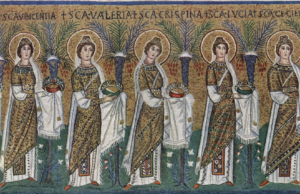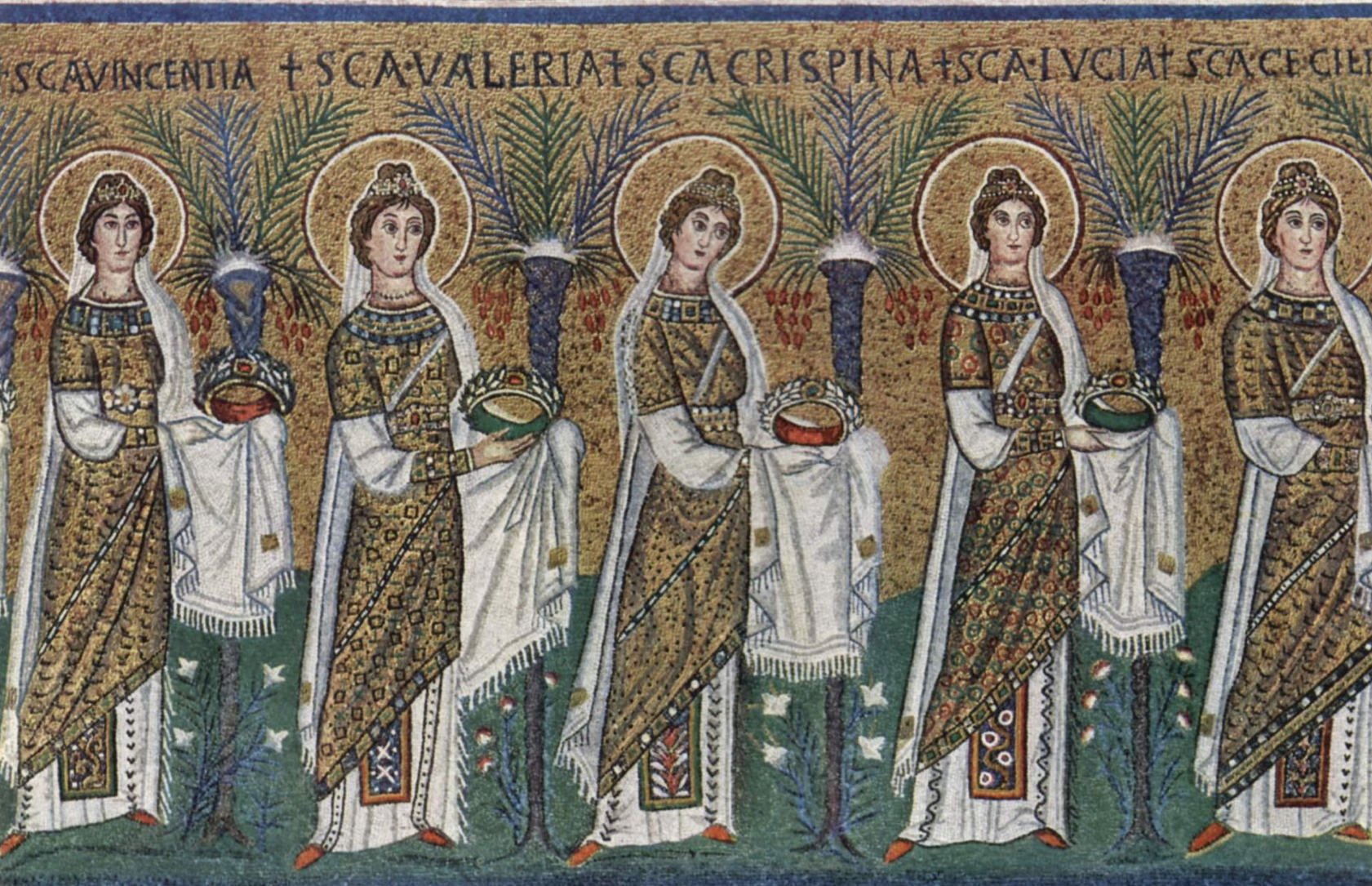
“There’s no point at which we can say, ‘I’ve got it.’ Always and forever, mystery gets you. Our searching for God is a search for symbols, analogies and metaphors. All theological language is an approximation, offered tentatively in holy awe. That’s the best human language can achieve.
We must, absolutely must, maintain a fundamental humility before the great mystery. If we do not, religion always worships itself and its formulations, and never God.”
So says Fr. Richard Rohr, and thus contemplates art historian and medievalist Professor Nancy Ross. Nancy reflects on the place of art as an approximation of the Christian faith in the West. She offers a heartfelt reflection on how art has shaped her own understandings of the divine and her faith development.
https://donorbox.org/april-falling-leaves-atf-fundraiser

That was such a inspiring podcast. The art ideas and also Nancy your journey through Mormonism into a calling into a priesthood. Loved it.
We are thrilled that you thought so!
One of the best analytic discussions I’ve heard of why people leaving Mormonism either become atheists or Mormon antagonists – from 33:00 to 36:00 hits the nail on the head. The idea that our entire belief structure is based on forced propositions is fascinating. When many find that those propositions aren’t 100% “true”, they repeat the mistake by searching for replacement propositions, which also aren’t entirely true. It’s not surprising that we are hardwired for accepting only absolute truth, regardless of both contradictory evidences and omnipresent mystery. What’s surprising is that so many people don’t KNOW they are hardwired for it. This may be the most fundamental weakness of Mormon theology, even our Achilles Heel.
I LOVE this sentence from Gina:
When leaving the church “very few people go into more-ness with respect to their spiritual lives. Very few people go from proposition to uncertainty”.
So poetic and revealing.
As a transitioning male Mormon, musician, and artist, this discussion resonated with me more than most.
My greatest desire and goal in my spiritual transition is to find the “more-ness” you hint at. I don’t want to lose or forsake Mormonism, I want to mature beyond it to the point that spirituality is a cherished bond between my soul and the mysterious divine. It’s taken a few years, but I no longer feel resentful or threatened by Mormon dogma, policies, and programs. I still feel sadness that the church is so bogged down by these worldly man-made things. How wonderful to see that it is in fact maturing as an organization, throwing off baggage such as scouts, separation between ages of men, ineffective programs like visiting & home teaching that were mere shadows of service and love. All of these things really bothered me once I began my faith transition because they were programmatic handicaps. I often complained about each of those things in ward council, to the chagrin of the entrenched leadership. And now they’re gone. Marvelous! I hope that the membership embraces the changes, throwing off the shackles of programs to learn the beautiful art of ministry.
Super interesting to hear that Nancy Ross has been invited to priesthood ordination in Community of Christ. Funny how Mormons believe in female prophets from the Old Testament, that we believe a woman of faith was healed simply by touching Christ’s garment (healing by faith in Christ’s power, not by priesthood), and yet we can’t even contemplate women holding the priesthood.
I taught a woman on my mission who was a faith healer. She was wonderful. I quickly grew to love her and admire her. She was as golden an investigator as I had met. She wanted to join the church, loved our theology, and her husband was supportive… right up until my companion informed them that she would have to stop faith healing because only men had the power to heal via the priesthood. She was taken aback, saddened, but gave it thoughtful consideration because she had gained a testimony, but her husband was like “HELL NO! Anybody that denies my wife’s Godly gifts can’t be true representatives of God!” He kicked us out and we never heard from them again. I was so angry. It broke me spiritually, I couldn’t function for weeks. We also had several families in my ward leave the church for the same reason, sisters who felt they had enough faith to bless their children in prayer with an eye towards healing. They were reprimanded by the ward leadership, and fell away and become antagonistic afterwards. These weren’t “apostate” members, they were truly faithful women with good service-oriented spirits and good solid families, women who realized the church couldn’t be “true” if this one part of it (the perceived infallibility of leadership) was false.
Sad and unnecessary. People think of “apostasy” as a judgement that’s handed down from above by the powers that be (men in authority) to those who have denied Christ and His teachings, but we KNOW that men in authority can be just as apostate as anybody else. It’s possible in these cases that the warnings about abused authority found in D&C 121 are found all too often in the church, that Bishops abuse their priesthood authority by harming those in the Lord’s flock who truly do have Godly gifts.
Not enough understanding to go around. Not enough reliance on divine guidance. Not enough forgiveness. Just strict programs and formulas designed to maintain the status quo.
I hope that members of the church, that people in general, who have spiritual gifts find their way to exercising their gifts in the service of God and their fellow men, regardless of what church authorities or antagonists think or believe. Godly gifts shouldn’t require the permission of anybody but the God who bestowed those gifts.
Thanks ladies for this enlightening and timely discussion! It made my week!
P.S.
I was a little sad when I realized that the “analysis of modern Mormon Art” that you hinted at in the beginning of the podcast never happened. I would have LOVED to hear both of your thoughts on the state of affairs at Deseret Book.
It’s sad to me that these Mormon Stories Foundation podcasts don’t use the power of the internet to add visual support of discussions like these. Why not provide links to the art you are discussing?
I think there needs to be a part II, dag-nabbit!
Cheers!